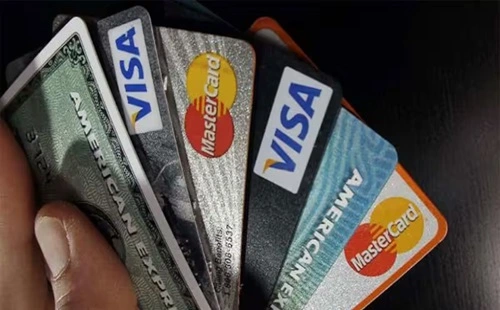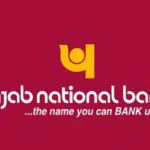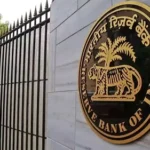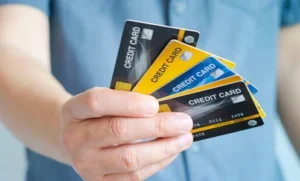A debit card is a small plastic card that you can use to buy things or take money from an ATM. It is connected to your bank account, which means when you use it, the money comes directly from the money you have in the bank. Debit cards are used a lot because they are easy to carry and help people avoid using cash. This card works at most shops, online stores, and ATMs around the world.
Now, let us learn about the advantages and disadvantages of using a debit card.

Advantages of Debit Cards
Debit cards come with many benefits that make them a convenient option for managing your money. Here are some of the key advantages:
1. Easy to Use
Debit cards are very easy to use. Whether you want to buy something from a shop, pay bills online, or withdraw money from an ATM, you can do it quickly with a debit card. You just need to swipe or insert the card and enter your PIN (Personal Identification Number) or use contactless payments.
2. No Debt Risk
One of the best things about a debit card is that you are spending your own money. Unlike a credit card, you are not borrowing money, so there is no need to worry about debt or paying interest. This means you can keep better control of your spending because you can only use what you already have in your account.
3. Safer than Cash
Carrying a lot of cash can be risky because you might lose it, or it can get stolen. But with a debit card, you can carry less cash. Even if your debit card is lost or stolen, you can block it by contacting your bank, making it safer than carrying cash.
4. Access to Cash Anytime
With a debit card, you can withdraw money from ATMs at any time, day or night. You don’t have to go to the bank and wait in line. This makes it very convenient when you need cash quickly.
5. Helps with Budgeting
Since you are using your own money, debit cards help in managing your budget better. You can track your expenses because the bank keeps a record of every transaction. This helps you avoid overspending because you can check your balance easily.
6. Wide Acceptance
Debit cards are widely accepted at most places around the world. You can use them at restaurants, supermarkets, petrol stations, and online stores. This makes it easier to make payments, whether you are at home or traveling.
7. Lower Fees
Debit cards usually come with lower fees compared to credit cards. There are no interest charges or large penalties. Some banks may charge small fees for using ATMs from different banks, but those charges are often lower than the interest rates on credit cards.
For more details on how debit cards work and how they can benefit you, check out bankingstuffs.com, a website that offers useful information about banking and financial tools.
Disadvantages of Debit Cards
While debit cards have many advantages, they also come with some drawbacks. Let’s explore the disadvantages:
1. Limited Funds
With a debit card, you can only spend the money that is in your bank account. If you don’t have enough money in your account, your card will be declined. This can be inconvenient if you need to make a big purchase and don’t have enough balance.
2. Less Protection than Credit Cards
Credit cards offer more protection to buyers, especially for online purchases. For example, if you buy something online and it doesn’t arrive or is faulty, it may be harder to get your money back with a debit card. Some debit cards offer protection, but it is usually not as strong as the protection with credit cards.
3. Overdraft Fees
If your account balance becomes negative, your bank might charge you an overdraft fee. This happens if you spend more than you have in your account. These fees can add up if you’re not careful.
4. Cannot Build Credit Score
A credit score is important when you want to borrow money in the future, like for buying a house or a car. Debit cards do not help you build a credit score because you are not borrowing money. If you only use a debit card, it won’t show up on your credit history.
5. Risk of Fraud
Although debit cards are generally safe, there is always a risk of fraud. If someone gets access to your card details, they can take money from your account. While banks do offer some protection, it might take time to get your money back, and during that time, you could face problems if your account is emptied.
6. ATM Charges
Sometimes, using an ATM from a bank other than your own may result in extra fees. These charges may not be high, but if you use other ATMs frequently, they can add up over time. It’s important to use your own bank’s ATMs to avoid these extra charges.
Comparison: Debit Cards vs. Credit Cards
| Feature | Debit Card | Credit Card |
|---|---|---|
| Spending Limit | Only the money in your account | Credit limit given by the bank |
| Debt Risk | No risk of debt | Risk of debt if not paid on time |
| Interest Charges | No interest charges | Interest charged on unpaid balances |
| Budget Control | Better control over spending | Can lead to overspending |
| Credit Score | Does not build a credit score | Builds a credit score |
| Fraud Protection | Limited protection | Strong protection, especially online |
| Fees | Lower fees | Can have higher fees and interest |
| Overdraft Risk | Yes, if account balance is negative | No overdraft risk |
| Convenience | Easy access to money from your account | Can delay payments |
Final Thoughts
Debit cards are a great tool for people who want to use their own money without borrowing. They are easy to use, safe to carry, and help you stay within your budget. However, they also have some downsides, like limited fraud protection and the risk of overdraft fees.
If you want to avoid debt and interest, a debit card is a good option. But if you want to build your credit score or need more purchase protection, you might consider using a credit card. Always be careful and choose the option that fits your needs.



















